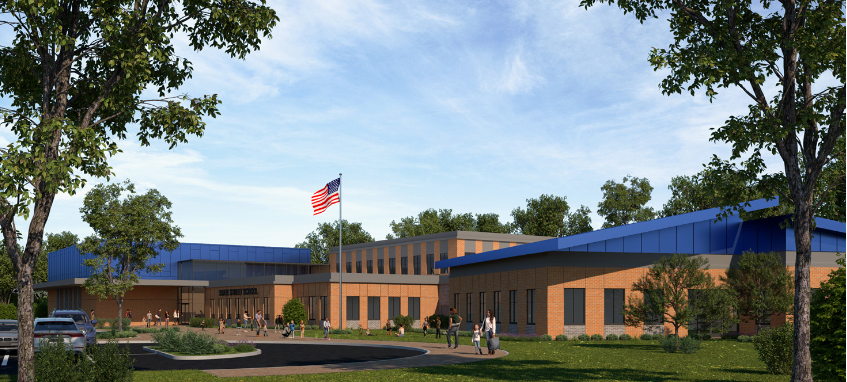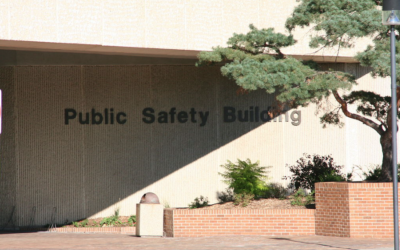
Photo courtesy of Westerly Public Schools
Earlier this month, voters in the U.S. responded to bond packages that amounted to $66 billion in total debt. More than half of the bond packages were approved and a combined $37 billion in municipal funding became available for a diverse array of projects. This reflects a $9 billion increase in voter approval for bond propositions compared to last year’s election results.
Voters supported several extremely large bond packages including the state of New York’s $4.2 billion bond proposition for climate-related projects. Now, $1.5 billion is available for projects designed to mitigate pollution, provide renewable energy, expand urban forestry, and address sea-level rise.
The November midterm election also gave Texas voters a chance to exercise their say on $21 billion in local bond funding. Approximately 66 percent of the Texas bond measures passed. One of the successful bond propositions allocated $2.4 billion for school district projects in the city of Austin.
Similarly ambitious bond packages throughout the country received voter approval. Oklahoma’s City Public Schools district received approval for a $995 million funding allocation.
This was the largest bond package in history for Oklahoma City and it will deliver a total of 400 school district projects. Included will be five new school buildings, a new multi-use stadium and, upgrades to numerous facilities. >
The San Diego Unified School District in California received great voter approval for an extremely large bond package – one with a total bonding debt of $3.2 billion for construction, renovations, and expansions. Approximately $300 million will be used to enhance classroom safety and $200 million is allocated for land acquisition and future construction of workforce housing. Other construction projects will be announced soon.
A school modernization project in the Westerly School District of Rhode Island received $20 million for campus renovations and $29.4 million for new school construction.
Renovation work on two of the district’s elementary schools will now have the necessary $20 million in place before construction begins in 2023. The district is also planning to finalize design work on its proposed State Street School that carries a projected cost of $30 million.
In Loudoun County, Virginia, voters enthusiastically supported a $268 million bond package. With 71 percent approval from voters, the public school system will use bond funding for design and construction of a new high school, renovation of an existing high school, systemwide security enhancements, and other campus renewal projects. The county’s most recent capital budget indicates that more than $180 million in bond funding is also available for the new high school, projected to cost $200 million.
A $165 million school bond program in Virginia’s Arlington County was successful and a $12 million security vestibule renovation project is now on the launch pad. By far the largest item included in the bond package, however, is a new Arlington Career Center campus which will receive $136 million. The new career center will be designed to improve students’ access to College and Technical Education (CTE) services. Construction work on the career center campus will begin in 2023.
South Carolina’s Orangeburg County now has funding for several school projects because voters approved a $190 million bond package. Funded projects include the Clark Middle School expansion as well as the redesign and renovation of the Howard Middle School building which will be converted into an elementary school. Funding will also advance development of a new high school and a new elementary school. Construction of the new high school is expected to begin as early as 2023.
Voters in California supported the Long Beach Unified School District’s bond election that allocated $1.7 billion for projects related to health, safety and student achievement. Projects will include plumbing systems, safe drinking water, and lead paint removal. It will also support renovation work across libraries, science labs, computer labs, and athletic facilities. School officials have released a master plan which forecasts $600 million in repairs along with other projects.
Approval for a bond measure in Pawtucket, Rhode Island opened the door to approximately $300 million of funding for school district projects including the city’s first new high school building in 80 years. The new high school’s concept design includes fully integrated space for CTE services. This project will be designed for a student body of 2,500. The project will be located on a site that formerly hosted McCoy Stadium.
A successful bond package for Highline Public Schools in Washington State allocated $518 million in funding to rebuild two high schools and one middle school. It also authorizes an additional $17 million for other projects including a new track and field, a remodeled site for the system’s virtual academy, new roofing, and HVAC upgrades.
Voters in Vermont’s Burlington School District supported a $165 million bond package that allocates approximately $165 million for construction of a new high school and a new technical center. Construction will launch in the next several months and this educational facility will be Vermont’s first new public high school in nearly 30 years.
It would be hard to find any state that hasn’t received funding for school projects. Bond programs that failed had a few critical projects but may become immediate targets for public-private partnerships where private sector funding is used. America’s schools are being upgraded along with its other infrastructure.







